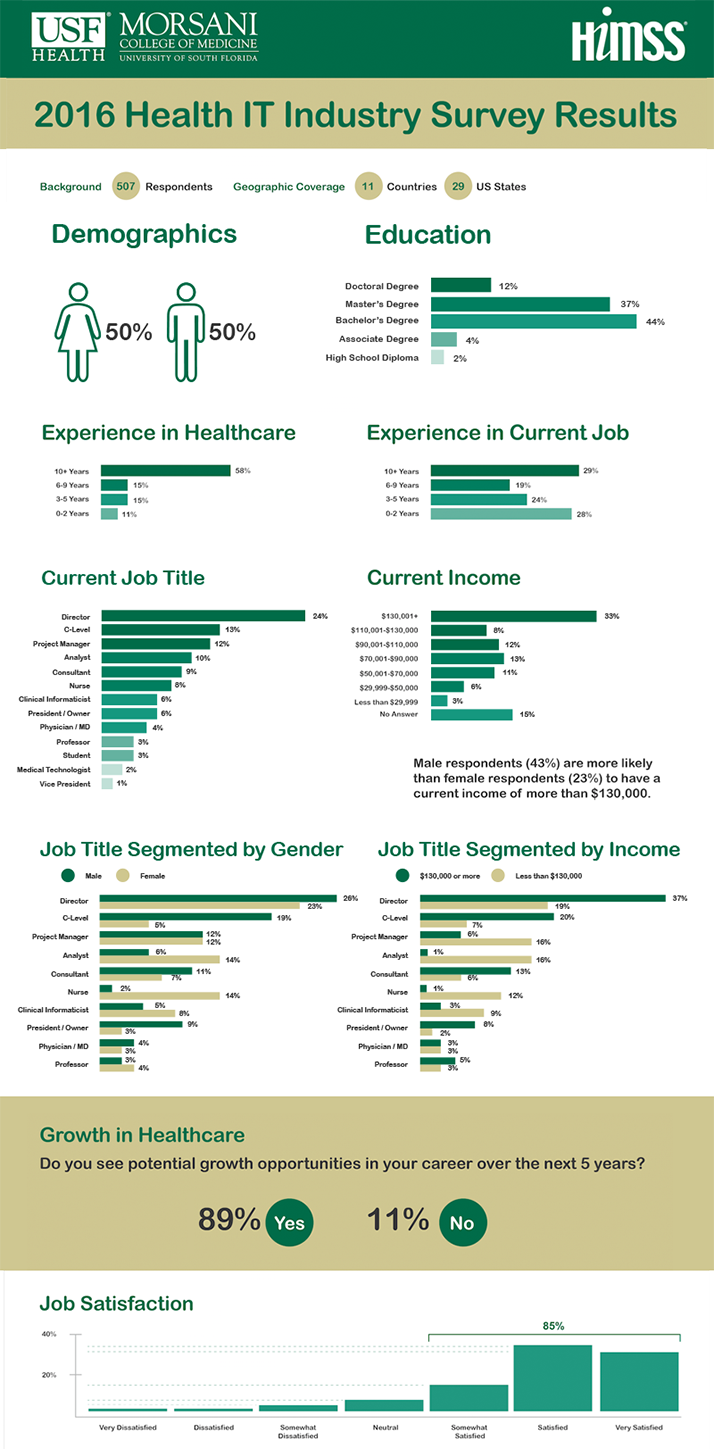Optimism continues to predominate the health IT industry, according to a recent survey of professionals in that field.
Most of those surveyed reported they were satisfied with their jobs, and most believed job growth would continue in the future.
The survey was conducted by Bisk, and its results were analyzed by Hanover Research, a market research firm based in Virginia.
The responses from 507 current healthcare and IT professionals were segmented by overall results as well as by education level, gender, income ($130,000 or more annually, or less than $130,000 annually) and whether the respondent held additional certifications.
Among the findings:
- Job satisfaction was reported by 84.64% of respondents, with 32.34% saying they are very satisfied, 36.33% describing themselves as satisfied, and 15.97% saying they were somewhat satisfied.
- Career Growth: Almost 90% of those respondents say growth will continue in healthcare over the next five years.
- Top earners tend to be in the health IT field, and work either in upper management or as consultants. They also tend to have higher levels of education than respondents with smaller salaries.
- Income Inequality: Men are much more likely to have annual salaries of more than $130,000 and hold executive positions in health IT.
- Experience: Most respondents work in the health IT field and have worked for at least 10 years in healthcare.
Respondents in the upper income category were much more likely — by 17% — to describe themselves as very satisfied in their careers.
Respondents weren’t only optimistic about the future of healthcare overall; 89% expected to see growth opportunities in their own careers in the next five years.
The survey classified each respondent in one of six occupational categories: health IT, informatics, healthcare administration, analytics, patient care and supply chain management.
Close to half (44%) of the respondents came from the health IT field. It was this field, as well as analytics and informatics, that those surveyed believed were most likely to see continued growth. Growth in health IT was rated “believable” by 83% of respondents, while informatics and analytics did slightly better, both being rated “believable” by 86% of those surveyed.
Almost 70% of respondents worked in healthcare before assuming their current positions, the rest having been in the informatics field. Women are most likely to have transitioned from healthcare, while men are most likely to have moved to their current careers from informatics.
Further, respondents with the highest levels of education tend to have come from healthcare.
Males and females were represented almost equally in the survey. Those with higher levels of education were represented in far greater proportions than those without: 37% hold at least a master’s degree, while 44% have at least a bachelor’s degree.
More than half of those surveyed hold additional credentials such as certification and licenses, with 83% of respondents with doctoral degrees having extra credentials.
Download the Full Health IT Salary and Satisfaction Survey Results
*National long-term projections may not reflect local and/or short-term economic or job conditions, and do not guarantee actual job growth. Information provided is not intended to represent a complete list of hiring companies or job titles, and program options do not guarantee career or salary outcomes. Students should conduct independent research for specific employment information.




